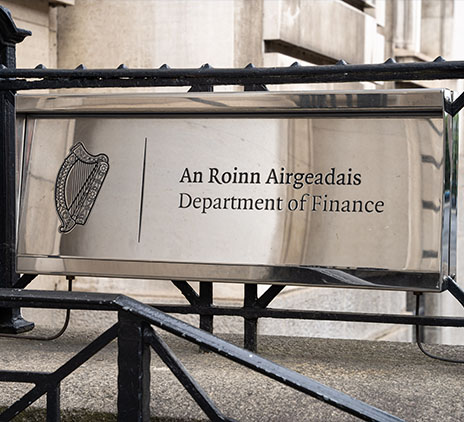-
Aviation Advisory
Our dedicated Aviation Advisory team bring best-in-class expertise across modelling, lease management, financial accounting and transaction execution as well as technical services completed by certified engineers.
-
Consulting
Our Consulting team guarantees quick turnarounds, lower partner-to-staff ratio than most and superior results delivered on a range of services.
-
Business Risk Services
Our Business Risk Services team deliver practical and pragmatic solutions that support clients in growing and protecting the inherent value of their businesses.
-
Deal Advisory
Our experienced Deal Advisory team has provided a range of transaction, valuation, deal advisory and restructuring services to clients for the past two decades.
-
Forensic Accounting
Our Forensic and Investigation Services team have targeted solutions to solve difficult challenges - making the difference between finding the truth or being left in the dark.
-
Financial Accounting and Advisory
Our FAAS team designs and implements creative solutions for organisations expanding into new markets or undertaking functional financial transformations.
-
Restructuring
Grant Thornton is Ireland’s leading provider of insolvency and corporate recovery solutions.
-
Risk Advisory
Our Risk Advisory team delivers innovative solutions and strategic insights for the Financial Services sector, addressing disruptive forces, regulatory changes, and emerging trends to enhance risk management and foster competitive advantage.
-
Sustainability Advisory
Our Sustainability Advisory team works with clients to accelerate their sustainability journey through innovative and pragmatic solutions.

-
 Asset management Asset management of the futureIn today’s global asset management landscape, there is an almost constant onslaught of change and complexity. To combat such complex change, asset managers need a consolidated approach. Read our publication and find out more about what you can achieve by choosing to work with us.
Asset management Asset management of the futureIn today’s global asset management landscape, there is an almost constant onslaught of change and complexity. To combat such complex change, asset managers need a consolidated approach. Read our publication and find out more about what you can achieve by choosing to work with us. -
 Internal Audit Maintaining Compliance with New EU Pension Directive IORP IIOn 28 April 2021, the Irish Government transposed IORP II (Institution for Occupational Retirement Provision), an EU directive on the activities and supervision of pension schemes, into law.
Internal Audit Maintaining Compliance with New EU Pension Directive IORP IIOn 28 April 2021, the Irish Government transposed IORP II (Institution for Occupational Retirement Provision), an EU directive on the activities and supervision of pension schemes, into law. -
 Risk, Compliance and Professional Standards FRED 82 – Periodic Updates to FRS 100 – 105The concept of a new suite of standards for the UK and Ireland, aligning with international financial reporting standards, was first conceived in 2002
Risk, Compliance and Professional Standards FRED 82 – Periodic Updates to FRS 100 – 105The concept of a new suite of standards for the UK and Ireland, aligning with international financial reporting standards, was first conceived in 2002 -
 Audit and Assurance Auditor transition: how to achieve a smooth changeoverAppointing new auditors may seem like a daunting task that will be disruptive to your business and a drain on the finance function. Nevertheless, there are a multitude of reasons to consider a change, including simply seeking a ‘fresh look’ at the business.
Audit and Assurance Auditor transition: how to achieve a smooth changeoverAppointing new auditors may seem like a daunting task that will be disruptive to your business and a drain on the finance function. Nevertheless, there are a multitude of reasons to consider a change, including simply seeking a ‘fresh look’ at the business.
-
Corporate Tax
Our Corporate Tax team is made up of more than 40 highly experienced senior partners and directors who work directly with a wide range of domestic and international clients; covering Corporation Tax, Company Secretarial, Employer Solutions, Global Mobility and Tax Incentives.
-
Financial Services Tax
The Grant Thornton team is made up of experts who are fully up to date in terms of changing and evolving tax legislation. This is combined with industry expertise and an in-depth knowledge of the evolving financial services regulatory landscape.
-
Indirect Tax Advisory & Compliance
Grant Thornton’s team of indirect tax specialists helps a range of clients across a variety of sectors including pharmaceuticals, financial services, construction and property and food to navigate these complexities.
-
International Tax
We develop close relationships with clients in order to gain a deep understanding of their businesses to ensure they make the right operational decisions. The wrong decision on how a company sells into a new market or establishes a new subsidiary can have major tax implications.
-
Private Client
Grant Thornton’s Private Client Services team can advise you on all areas of financial, pension, investment, succession and inheritance planning. We understand that each individual’s circumstances are different to the next and we tailor our services to suit your specific needs.


Receive the latest insights, news and more direct to your inbox.
Building upon the existing Non-Financial Reporting Directive (NFRD) which was issued in 2018, the CSRD expands the scope of undertakings who will have to disclose sustainability information and introduces more detailed requirements and disclosures under Environmental (E), Social (S) and Governance (G) topics.
This will apply to circa 50,000 EU undertakings. Under the CSRD, disclosures will have to be made in the annual management report of the undertaking alongside their financial statements and for the same reporting periods. This reporting will cover both the companies own operations and its value chain.
European Sustainability Reporting Standards (“ESRS”)
The European Financial Reporting Advisory Group (EFRAG) is responsible for drafting the new reporting standards for consideration by the EU Commission under the CSRD. These standards are known as the “European Sustainability Reporting Standards” or “ESRSs”.
The first “set” of draft ESRSs were issued by EFRAG to the EU Commission in November 2022 and are expected to be transposed into national law in EU member states during 2023. These initial exposure drafts include 2 “cross-cutting” (applicable to all undertakings regardless of sector and / or in specific circumstances) and 10 “topical” standards across E, S and G.
The draft ESRSs take into consideration existing EU regulation such as the SFDR and Taxonomy regulations, as well as considering international initiatives [1] such as the ISSB, TCFD and GRI, in order to try and lessen the burden on companies by avoiding duplication of disclosures.
CSRD Scope and Summary Reporting Requirements
Firms falling into scope of CSRD must report on their governance structures, strategy and business models and the output of a materiality assessment in relation to material sustainability matters and topics for their undertaking. Mandatory disclosures include those listed under ESRS 2 (“General Disclosures”) and E1 (“Climate”) in addition to certain disclosures under social topics outlined in ESRS S1 (“Own Workforce”).
Other topics and disclosures are subject to a double materiality assessment (financial and impact materiality). Disclosures and the sustainability statement will initially also be subject to limited assurance, moving to reasonable assurance at a later date.
Next steps and how we can help
Establishing ownership, internal governance and reporting structures can be a challenge to meet new regulatory requirements. In addition to this undertakings will need to complete a materiality assessment and / or gap analysis to existing sustainability reporting and define disclosures required within their management report.
Grant Thornton’s Sustainability Team have a dedicated team of SMEs in sustainability strategy, sustainable finance, regulation and sustainability reporting to help with this transition.











